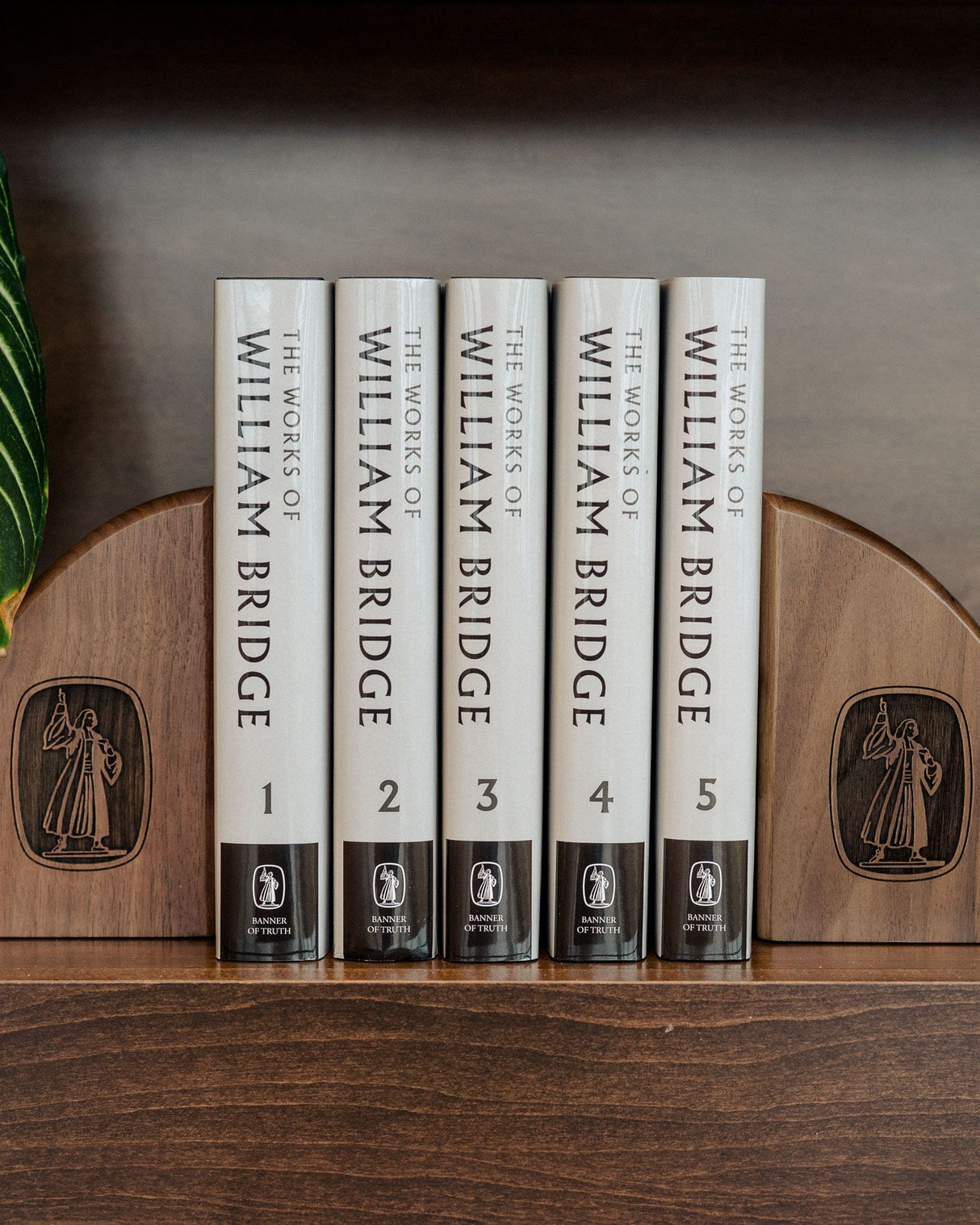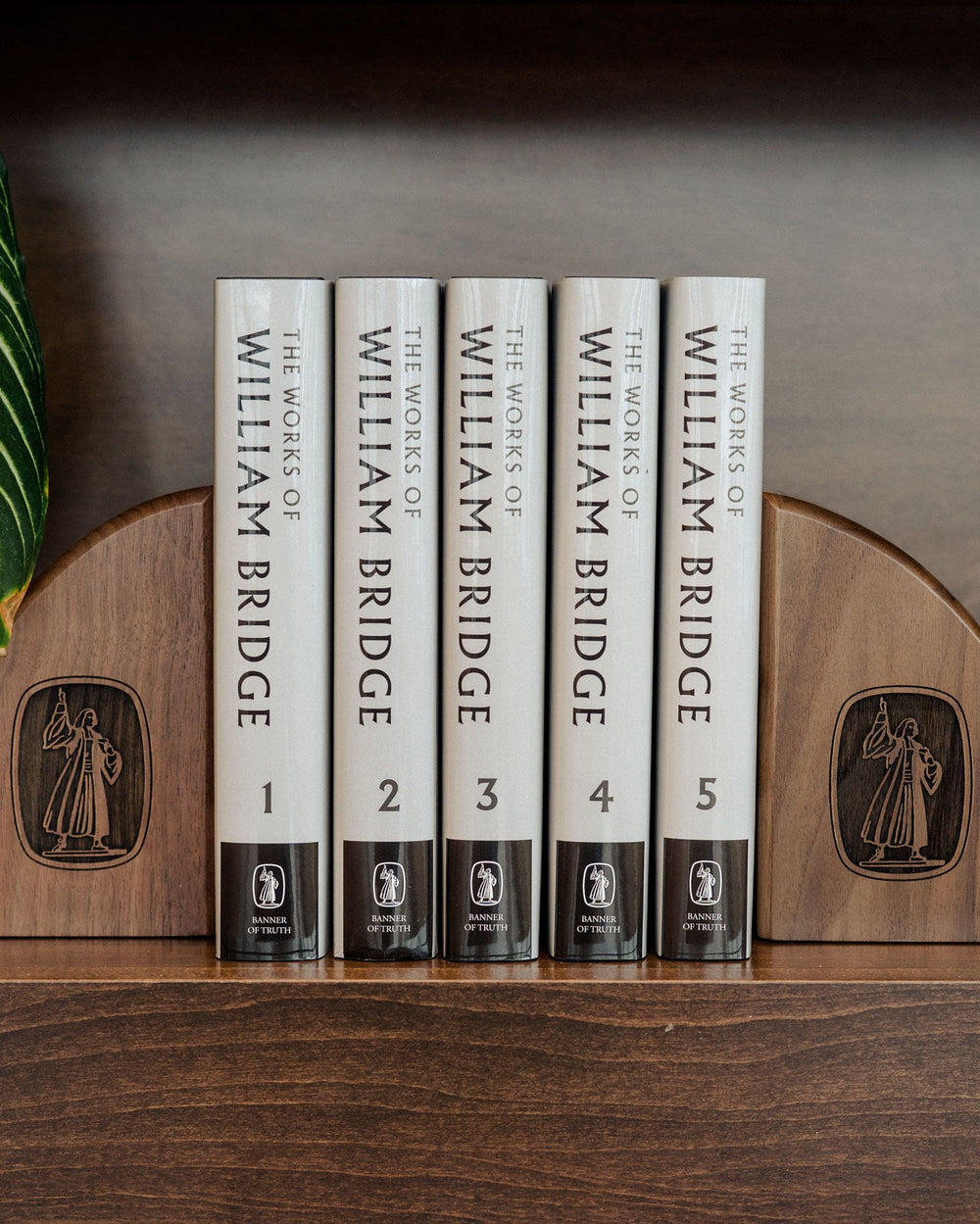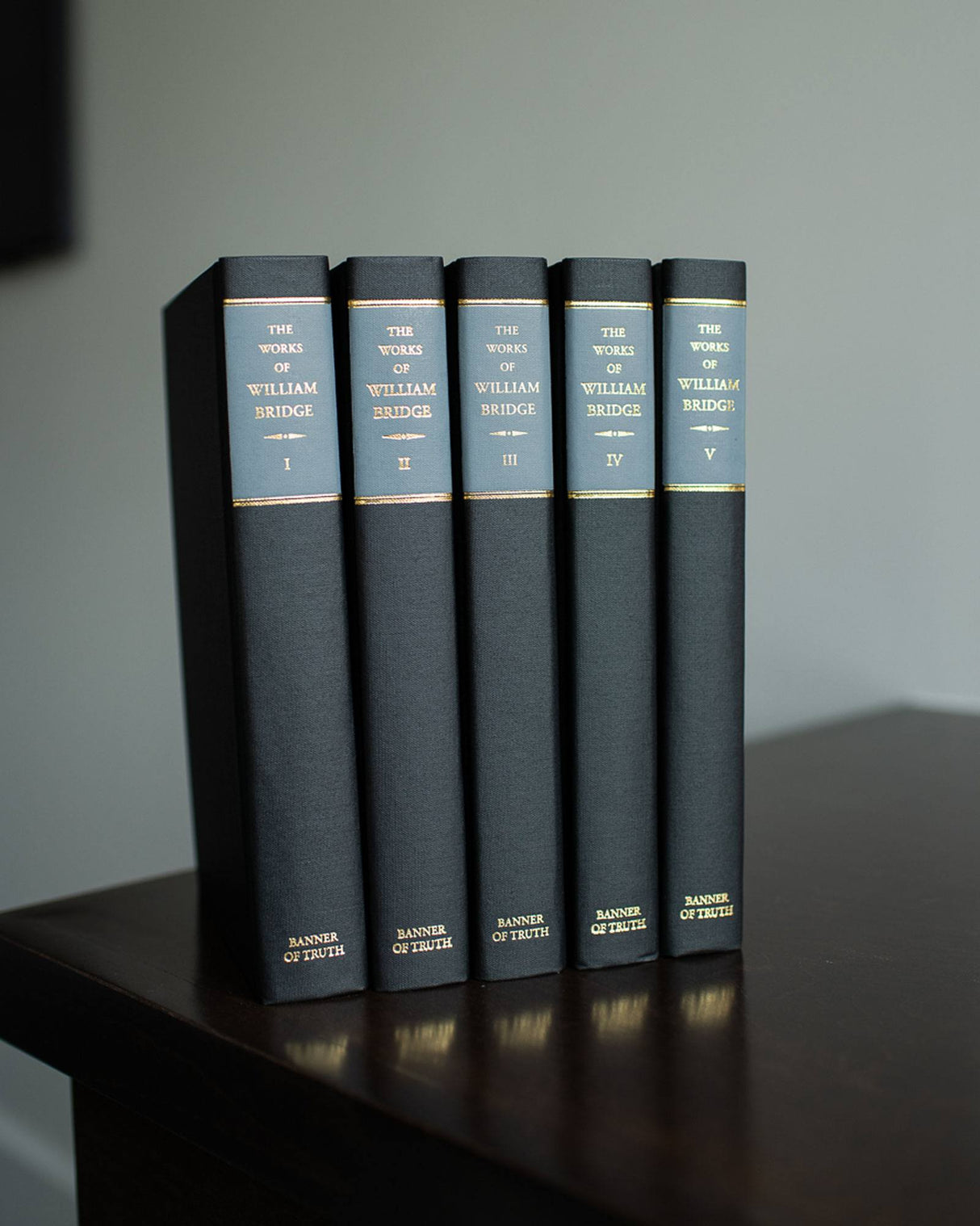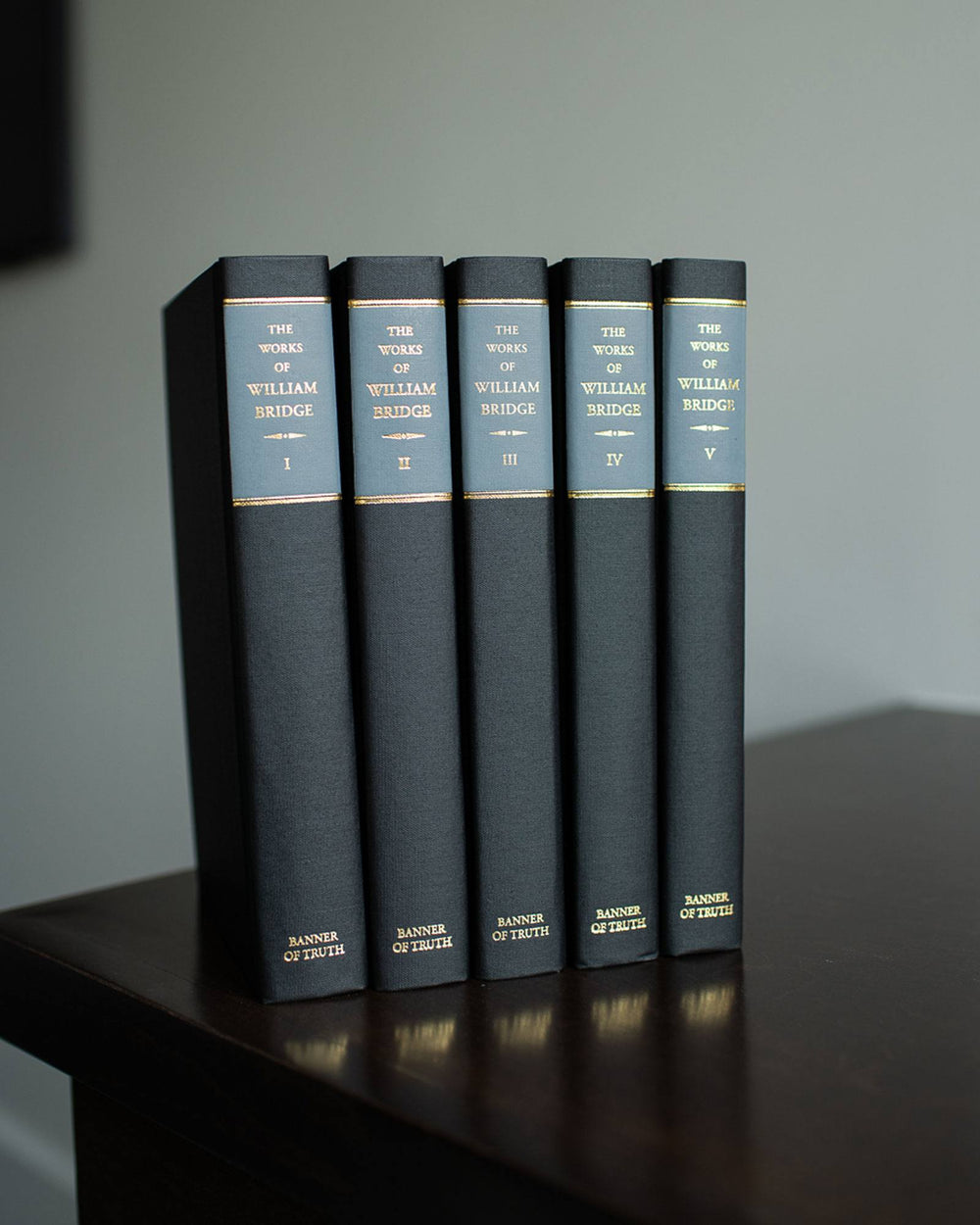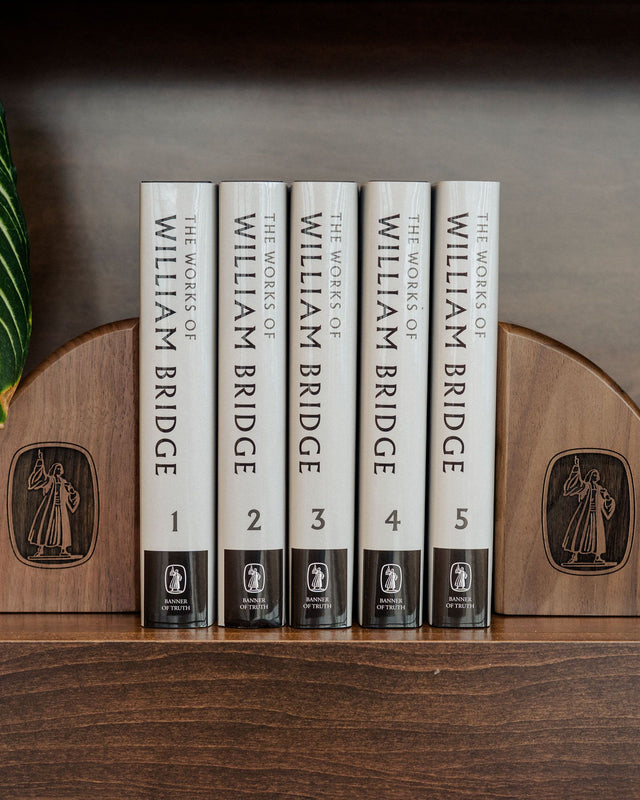The Works of William Bridge
Bridge, William
10% off
$143.98
$160.00
Unit price
/
Unavailable
This product will ship directly from the publisher and you may not receive tracking. Learn More
‘Times of difficulty and of persecution have always been seasons in which God’s ministers shine with greatest lustre.’
These words from the memoir of Bridge contained in these collected Works of William Bridge serve to remind readers of the context in which William Bridge lived and worked.
Born in Cambridgeshire around 1600, Bridge entered Emmanuel College, Cambridge in 1619, where he earned a bachelor’s degree in 1623 and a master’s degree in 1626, before serving as a fellow of the college.
He was ordained a priest in the Church of England in 1627, and served in Saffron Walden and Colchester in Essex, then becoming rector of St Peter Hungate in Norwich in 1632.
In 1636 he was forced to flee to Rotterdam in Holland because of Bishop Matthew Wren’s campaign against nonconformity. There he co-pastored a church with John Ward and then Jeremiah Burroughs.
Returning to England in 1641, the following year he was appointed a member of the Westminster Assembly, and proved himself a noted Independent. That same year he accepted a position as town preacher at Yarmouth, where he organized an Independent church, and formally became its pastor in the autumn of 1643. He laboured there until 1662, when he was ejected by the Act of Uniformity.
Bridge spent his last years at Yarmouth and Clapham, Surrey, where he died in March 1670.
William Bridge was an excellent preacher, able scholar, and prolific writer with a well-furnished library, but he was no ivory tower theologian. His parishioners viewed him as a charitable and candid pastor whose ministry helped many people.
Specifications
-
Cover Type
-
ISBN
-
Page Count
-
Publisher
-
Publication Date
